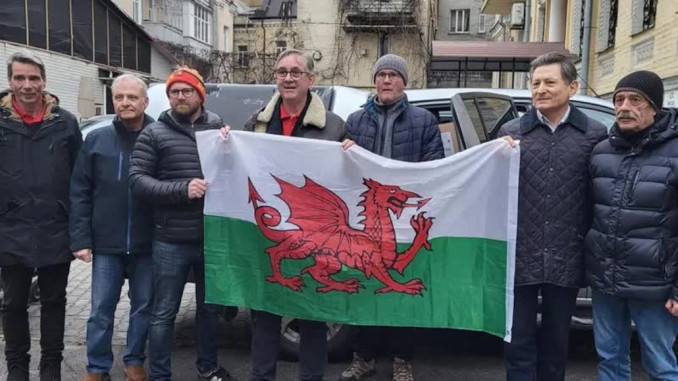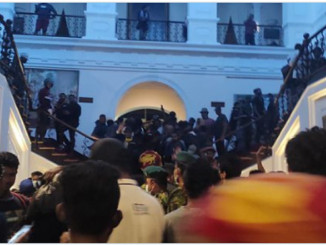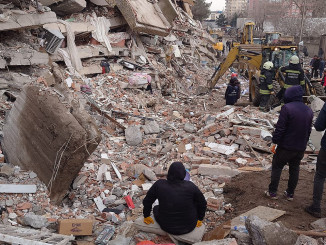
In 1984, when miners of the National Union of Miners (NUM) in South Wales were in the middle of the United Kingdom’s largest and hardest fought miners’ strike, they received deliveries of money and food from miners in the Ukraine, then part of the Soviet Union. This show of solidarity was nothing new, and continued on and off after the strike ended. In the 1950s and 1960s there had already been trade union exchanges between the miners in the two nations. After 2007, there were more solidarity exchanges between the NUM in the United Kingdom and the Mineworkers Union of Ukraine (PRUP), and in 2018 miners from the U.K. traveled to Ukraine for celebrations of Miners Day and Ukrainian Independence Day.
This past week, in February of 2024, international solidarity was remembered. This time, NUM sent a delegation of working and retired miners (a few of whom had been direct recipients of the support from the Ukrainian miners in 1984) who drove into Kyiv with medicine and other badly needed supplies. In the face of the Russian invasion and occupation, and with many miners from eastern Ukraine fighting on the front lines, NUM members felt it was important to support their fellow miners and workers. One miner from Wales said, “This is about repaying them and reminding people that Ukraine is the frontline of democracy in the fight against Russian aggression…The people we are delivering these supplies to are not only fighting on the front line, but some of the older ones were the ones collecting money and food for Welsh miners.”
This show of cross border solidarity is an example of workers supporting each other and building relationships with each other over time despite their national and geographic differences. But despite the small scale of this example, it is nonetheless a truly inspiring occurrence.
Too often, rulers and bosses convince workers that they are different from other workers, that other workers threaten their jobs, or that they need to go to war with other workers who threaten our security. These artificial and manufactured divisions are one of the primary ways the capitalist class keeps workers divided and allows the capitalists to maintain their dominance.
But once workers begin to break down those artificial national boundaries and start forming bonds of solidarity with each other across borders as workers, then new possibilities appear. As Karl Marx wrote in 1848 at the end of the Communist Manifesto, “The proletarians have nothing to lose but their chains. They have a world to win. Workingmen of the world, unite!”
With this decades long show of solidarity, the miners of Ukraine and Wales are giving us just a small example of what can be done to bring Marx’s words into being. Let’s learn from and extend their work. Working people of the world, unite!




